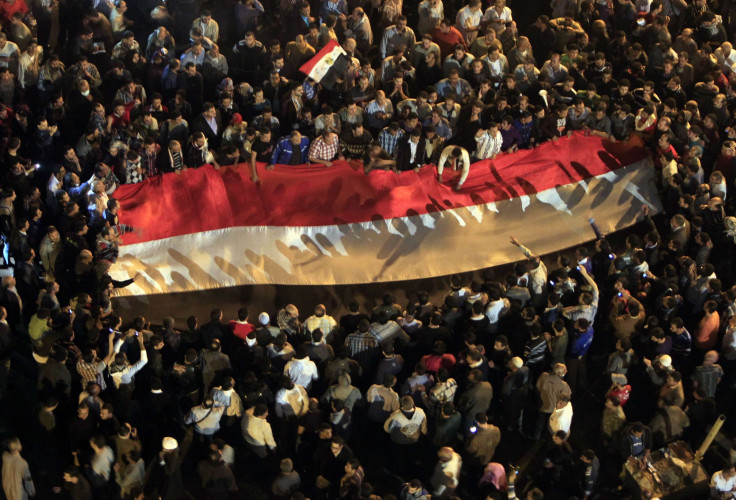Thousands Of Egyptians Protesting President Morsi Following Latest Decree; Hundreds Injured

Groups of protesters divided by their views on Egyptian President Mohammed Morsi’s latest actions took to the streets Friday and Saturday, staging massive demonstrations and civilian clashes in Cairo reflective of the country’s tortured path towards democracy.
Groups of anti-Morsi protesters, organized by Egypt’s fractured liberal opposition, began demonstrating Friday evening, a day after the president issued a decree expanding his office’s powers, a move his opponents called “a power grab” by “a new Pharaoh.”
"Morsi is Mubarak ... revolution everywhere," protesters chanted on Saturday in Cairo’s Tahrir Square, according to the BBC, as demonstrators threw stones and molotov coctails at police, who fired tear gas at the protesters.
The actual series of events leading up to the weekend’s street action are highly complex and come at a time when the Egyptian political system, moving slowly from the revolutionary fervor that toppled a dictatorship just over a year ago, appears deadlocked. On Thursday, President Morsi issued a decree that declared the judiciary ineligible to overrule his decisions or dissolve the 100-member panel set up to write a new Constitution for the country, as the nation’s courts have done in the past. In the same decree, Morsi dismissed the country’s highest prosecutor.
While those actions might appear to be a craven power grab, supporters of the president note that the country’s judiciary is stacked with appointees loyal to the former dictator and are obstructing the establishment of a constitutional assembly, an effort designed to prompt a political crisis. The dismissed prosecutor, in particular, was widely reviled for dragging his feet in bringing charges against those that abused protesters during 2011’s Arab Spring.
Egypt’s political problems are compounded by the country’s liberal secular opposition, who, while united in their distrust of Morsi and his Islamist Muslim Brotherhood brethren, have failed to unite to deliver an alternative leader to claim the mantle of the revolution.
On Friday, Morsi, calling himself a “faithful guardian” of the revolution, told a crowd gathered at the presidential palace that he sent “love to all the people of Egypt, you and even those that oppose you, I have the utmost respect for everyone.
“But Egypt, the revolution, the president of Egypt -- the institution that we are building now -- can isolate the rot that's present and put it aside so that the country functions,” Morsi said in a speech that attempted to be conciliatory without giving ground on his decision, according to the Wall Street Journal.
“We won't oppress anyone,” Morsi added.
Morsi’s words hardly reassured the masses who have turned out to protest his actions over the past two days, leaving hundreds injured in clashes between supporters and opponents of the President.
“There was a disease, but this is not the remedy," Hassan Nafaa, a liberal political science professor and activist at Cairo University, told Reuters Friday. "We are going towards more polarization between the Islamist front on one hand and all the others on the other. This is a dangerous situation.”
Outside of Egypt, the U.S. government has expressed its reservations regarding the latest decrees coming out of the presidential palace, but it is in a compromised position given the crucial aid provided earlier in the week by Morsi in negotiating a truce between Israel and Palestinian militants.
Further protests are slated for Sunday and Tuesday.
© Copyright IBTimes 2024. All rights reserved.




















